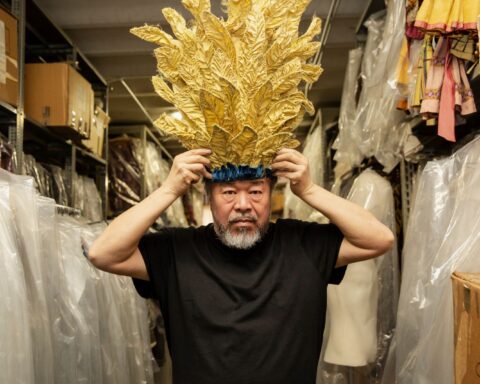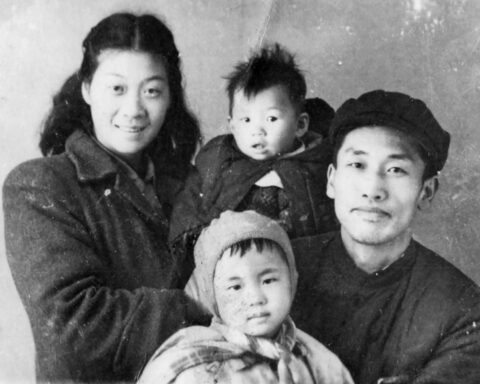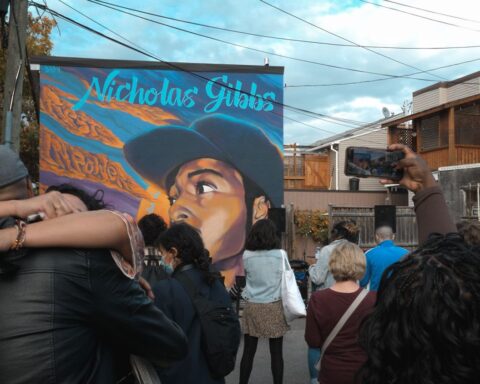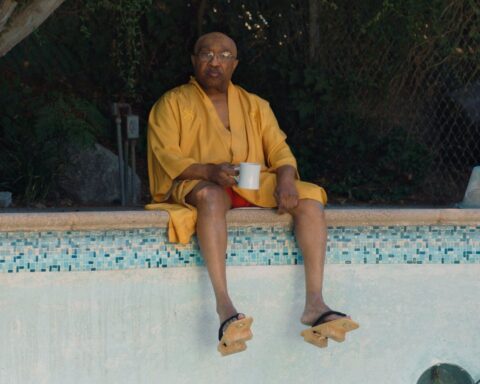This month, TIFF will be presenting The Crisis of the Real: New Chinese Independent Documentaries, the Toronto incarnation of Cinema On the Edge’s politically controversial China Now: Independent Visions travelling film showcase. The series features eight documentaries plucked from the best of the Beijing Independent Film Festival from 2012 to 2014, when it was shut down by the government.
Toronto-based critic and curator and one of the organizers of Cinema on the Edge, Shelly Kraicer, writes in his programmer’s essay, “Interesting places make for interesting cinema, and at present there is no more creative, vital, and provocative independent cinema in the world than that emerging from the People’s Republic of China.” He delineates the difference between tizhinei, the state-sanctioned mainstream filmmaking market in China, and tizhiwai, filmmaking efforts that fall outside of this system and which make up the present touring programme.
There is plenty of interesting tizhiwai fare in this series. Cut Out the Eyes is a raucous, direct portrait of Er Housheng, a man who was made blind after sleeping with his boss’ wife and now makes his living as a travelling troubadour spewing a perversely alienating yet ingeniously hysterical form of musical comedy called er en tai. Housheng performs many songs with his partner, Liu Lanlan and the film follows the duo along their tour of Inner Mongolia. There is a level of rural remoteness in Mongolia that lends the film a magical, otherworldly atmosphere. The windswept plains and pillowing dust make way for a kind of tragicomedy that blends destitution and unfortunate circumstance with brazen hope and rousing laughter in the face of the truly terrible and true story of how Er Housheng’s eyes were cut out, which he performs in the film’s truly remarkable and memorable final scene.
The Last Moose of Aoluguya brutally follows Weija, a profoundly drunk, impassioned and nostalgic member of the Evenki tribe, one of the 56 ethnic groups officially recognized by the People’s Republic of China. While often hard to watch, this unsparing and all-encompassing emotional portrait of Weija provides a look into the hardships of China’s indigenous tribal populations. His tribe has been resettled and his culture is disappearing. Their language and traditions have been all but wiped out. The reindeer that the tribe normally subsists on for food and income are running scared and confused in a severely depleted forest, falling prey to ever-increasing poachers. There are many tender scenes, which show off Weija’s lovingly nostalgic personality, such as when he and his friends return to their old village and wax poetic about a particular bird’s nest in one of the old trees. Another brilliant scene is when Weija is caringly glancing at his dog and wondering why no books have been written about dog’s dreams. But unfortunately, these tender kind-hearted moments are overshadowed by his almost unbelievable reliance on alcohol.
Wieja’s worried mother wants to marry him off and cure him of his alcoholism as he moves to China’s far south with his new bride. Not too surprisingly, Weija soon slips back into his drunken haze lamenting that he doesn’t feel at home; eventually he returns to his native habitat, only to realise yet again that “the forest has become a garden of sorrow.” While this film is filled with sorrow and at times is heartbreaking to watch, one must admire the direct, compassionate approach of director Gu Tao in his quest for an authentic storyteller, whose tale can serve as a parable of the encroaching modernity in a fast-changing Chinese society.
Satiated Village, created in conjunction with the Beijing studio Caochangdi Workstation’s Folk Memory Project, centres around filmmaker Zou Xueping’s efforts in getting together the subjects of her previous work, The Hungry Village, to watch themselves in that film. There are some moments reminiscent of Ross McElwee (Sherman’s March) in Satiated Village, as the director constantly questions those in her village, including family members, about what they think of the film and whether it should be shown to people outside of China. While The Hungry Village questions elders about how they felt during the great famine of 1958, this doc is more of a rumination on the differences in generational attitudes towards whether or not the older film should be screened outside of China. “It would be betraying Chairman Mao,” one elder states, emphasizing that there is still a strange reverence toward the famous founding father of The People’s Republic. The filmmaker’s passion and closeness to the subject matter shines through, and she often gets defensive when family members criticize the film. In the end, she chooses to screen the doc to the village’s young children, perhaps in an effort to find different, more positive reactions from a generation far removed from Chairman Mao.
According to the website of Cinema on the Edge, The China Now: Independent Visions (and thus the Toronto incarnation, Cinema of the Real) is “modeled on how independent cinema is exhibited in China today.” This series is a chance for Torontonians to see that unique and exciting distribution and curatorial hybrid model in action. So when you are watching these films, not only can you enjoy them as individual works of documentary cinema, but as a ,member of a grassroots, artisanal exhibition circuit.
Crisis of the Real opens March 10 at the TIFF Bell Lightbox, and goes through April 1. See the screening schedule here.
Read on the series in the POV review for Ai Weiwei’s Ping’an yueqing.
Next week, please look out for our interview with J.P. Sniadeck, one of the organisers of the Cinema on the Edge series and co-director of two films in the series, People’s Park (March 15) at TIFF and Yumen at Typology (March 30 & April 3).
For more information on Cinema On the Edge, check out their website and check out the extension of the series at Typology.











